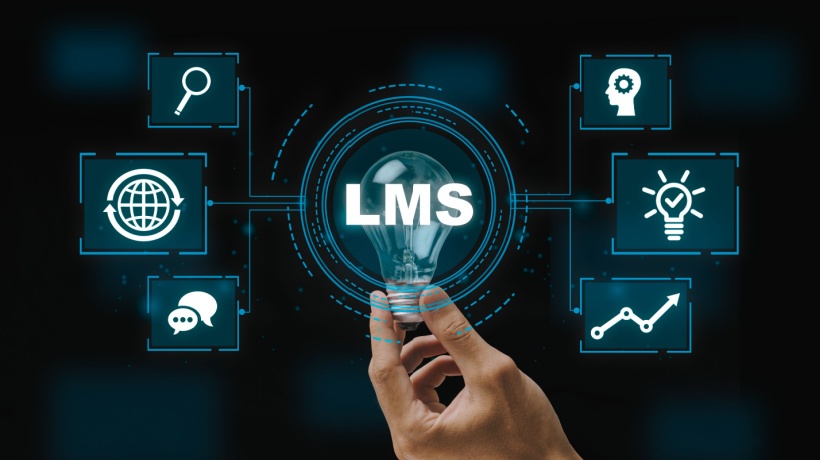8 Ways That A Successful LMS Integration With Your Current HR Systems Can Benefit Your Organization
Collaboration is crucial for every aspect of business operations, but particularly so for your online training initiatives. It takes solid teamwork, both in terms of human resources and software assets, to deploy and maintain your online training at peak efficiency. It may be a coordinated effort that requires careful planning, but the rewards are worth the effort. Let’s take a closer look at the 8 most notable benefits of LMS integration with existing HR systems.
1. Reduces Redundant Data
Data redundancies can cause a variety of issues, from wasting valuable time and resources to inaccurate information that leads to online training inefficiencies. However, LMS integration with your current HR systems helps save time regarding data input and maintenance. Your L&D or HR team will only have to add the information to the system once instead of keying it in every time you purchase another piece of training software. This also ensures that everyone is on the same page and has the same pool of data to draw from.
2. Helps Provide More Personalized Online Training
A significant perk of LMS integration with your current HR software is enhanced analytics. Instead of merely accessing pieces of the puzzle, you get a comprehensive overview for each employee. You can view their job responsibilities, past performance, and online training progress to provide greater personalization. If your LMS is not integrated with your HR systems, you would have to analyze the data separately and then compile the information. LMS integration also allows you to migrate the data between systems more efficiently, as the platforms will automatically communicate with each other at specific time intervals. For instance, at the end of every work day.
3. Reduces The Risk Of Inaccurate User Data
Inputting the same data multiple times can result in human error. Even a simple mistake can cause corporate eLearning challenges. For example, an employee might be guided down the wrong online training path due to a simple keying mistake. This also applies to data analysis. All the information can be viewed in one centralized location. As such, you don’t have to worry about missing metrics or user data that play a vital role in the online training evaluation process.
4. Helps Identify Tends That Translate Into Actionable Goals
LMS integration with existing HR systems helps you spot patterns and trends that you can use to improve online training. You can turn this raw data into actionable goals which improve user experience and reduce employee attrition. For example, HR system data reveals a low employee retention rate. You can pair this knowledge with LMS metrics to get to the root of the problem, such as re-evaluating coursework for departments with the highest turnover rates in order to create more engaging online training content.
5. Provides More Effective Online Training Analytics
Big Data is all the rage right now, and it’s easy to see why. Big Data gives you the power to gain more insight into your talent pool and the training they require. LMS integration with existing HR systems allows you to analyze your data more effectively and rapidly. For example, track online training gaps using charts and graphs that are based on an employee’s job description. They require specific skills according to the HR system, but the LMS shows that they require additional online training resources to meet the criteria.
6. Improves Resource Allocation
LMS integration with HR systems helps improve resource allocation in many ways. First and foremost, your staff can concentrate on other job responsibilities instead of inputting data in multiple platforms. When an employee comes on board, your L&D and HR employees can centralize all the new user data and immediately assign suitable online training. Secondly, you gain the ability to recommend online training resources to employees based on a variety of factors, such as work tasks, necessary skills, past performance, and even their professional aspirations. Then there’s the notable advantage of streamlining system maintenance. Big Data is migrated automatically between systems. Therefore, you can rest assured that it’s always up to date, without having to input the information manually.
7. Allows You To Identify Top Talent
LMSs typically track online training progress and performance but they don’t offer a comprehensive overview of the employee’s work history or annual evaluations. However, an LMS integration with your current HR system gives you the opportunity to explore your staff more holistically rather than merely analyzing a small fragment of their skills and abilities. As a result, you can identify top talent and give them the online training resources they need to advance in the organization. Likewise, employees who are struggling receive the timely intervention they require to work on their areas for improvement.
8. Improves Online Training ROI
All these LMS integration benefits result in improved online training ROI. Employees receive more personalized online training resources and your L&D and HR staff make the most of their time by avoiding data redundancies. You also gain the ability to collect actionable data with minimal effort. This means that you can invest in online training initiatives that have the most significant impact, as well as re-evaluate or eliminate materials that are no longer relevant. That said, you need to do your homework to determine which LMS has the features you need so that you maximize your investment. Otherwise, you may end up with a system that hinders both departments. For example, the user interface is overly complicated and involves a steep learning curve.
Your L&D and HR team both play a crucial role in talent development. Thus, their respective systems should also work together to keep track of user data and automate certain aspects of the online training process. You might even consider integrating other business software to further enhance efficiency, such as accounting and CRM platforms.
Looking for more than just a Learning Management System? Take this free trial.









